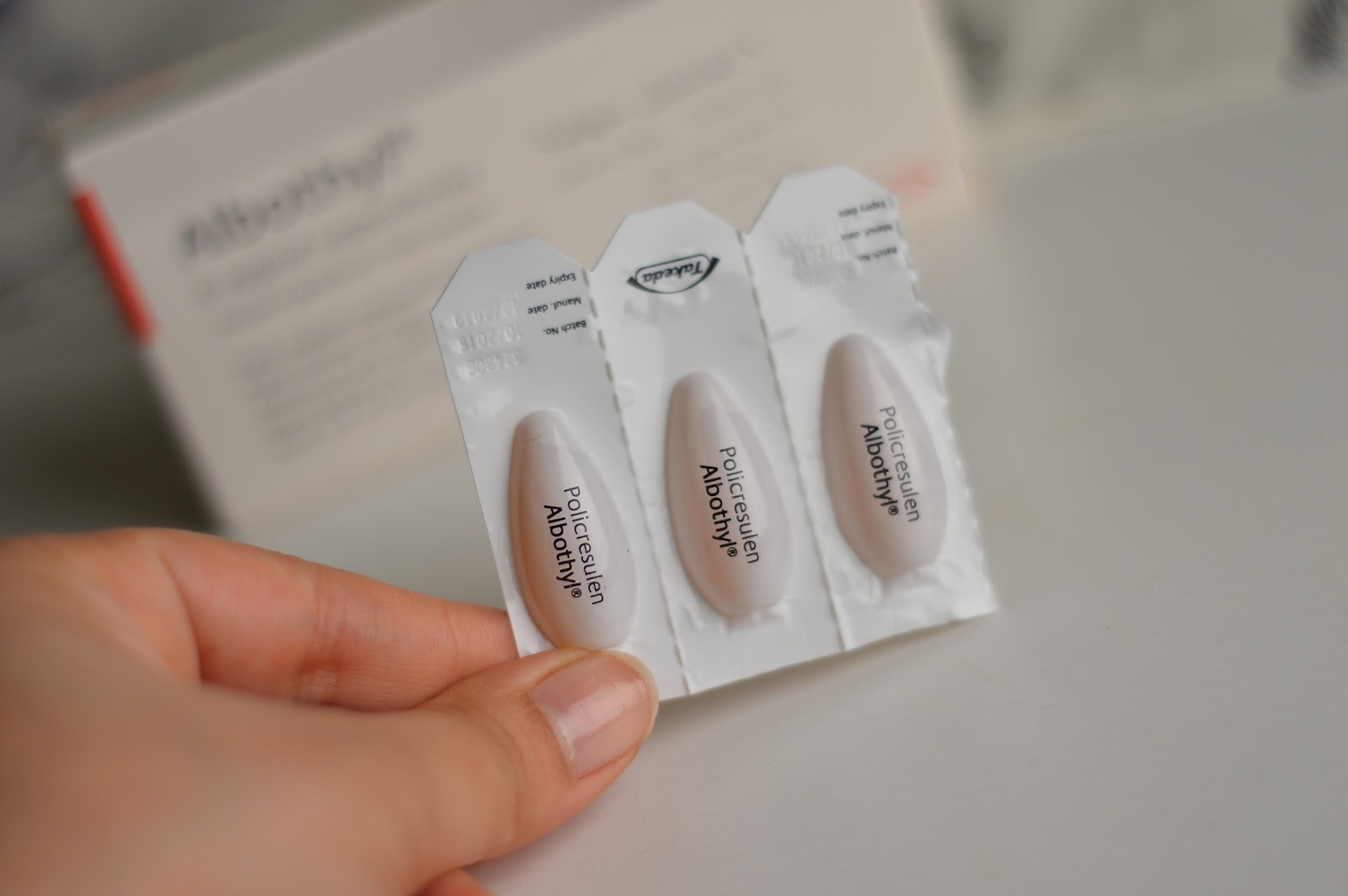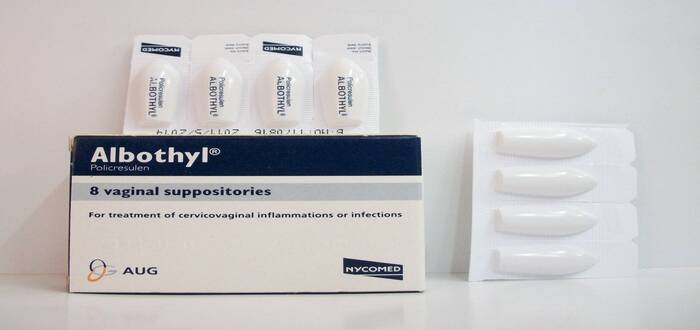When do the crusts of bothyl suppositories come off?
- Variation in timing: It is important to understand that there is no specific time for the peeling of the Bothyl suppositories to come off.
This varies from woman to woman and may depend on the woman's clinical and physical condition. - Common waiting period: Although the timing varies, most women notice the crusting of the Bothyl suppositories coming off within a day or two of using them.
This period can be long and varies from one woman to another. - Appearance of the suppository shell: Some people may be concerned about the appearance of the suppository shell and whether it is large or causing damage.
But don't worry, the shell of the suppositories is usually a small, tissue-like piece that may be transparent or a different color than the medication granules. - Consult a doctor: If you are concerned about the peeling of Albothyl suppositories or if it continues for a long time, it is recommended to consult a doctor.
The doctor will be best able to provide appropriate advice based on your specific condition.

When do antifungal suppositories take effect?
The pharmacological effects of antifungal suppositories are very popular in the treatment of diseases and infections that affect the vaginal and rectal area.
However, it is important to understand when antifungal suppositories start working after using them.
When using fungal suppositories, the active ingredient is immediately spread to the target area.
However, it may take some time for the patient to notice an improvement in his symptoms.
Usually, this depends on the type of fungal suppositories used and the severity of the fungal infection or disease.
If the patient suffers from a mild fungal infection, he may notice an improvement in symptoms within several days after starting to use the suppositories.
But if there is an outbreak of a severe fungal infection, it may take longer to respond to treatment.
Do butyl suppositories cause pain?
These suppositories can cause poisoning, nerve damage, allergic reactions, irritation and burns.
We will mention that bothyl suppositories contain an active substance called butyl that acts as an anesthetic.
They are generally used to relieve itching, inflammation, and general soothing of the area to be treated.
However, these suppositories should be used in accordance with the instructions for use and the recommendations of the supervising physician.
To date, there is no reliable evidence that bothyl suppositories cause serious health harm.
Although minor side effects such as temporary itching, minor redness, or sensitivity may occur in some individuals, this is rare and does not usually require medical treatment.
How long does the suppository take to dissolve?
The suppository melting time depends on several factors, including ambient temperature and the volume of suppository used.
Normally, it is believed that it takes 10 to 30 seconds for the suppository to melt at normal room temperature.
But when it comes to larger loads or at different temperatures, it may take longer.
Therefore, a large suppository may require about a minute or more to be fully absorbed.
Also, if the suppository is exposed to higher temperatures, the time required for dissolution may be affected.
Why does the suppository come out?
- Natural dissolution: Most vaginal suppositories consist of substances that dissolve when exposed to body heat.
When the suppository is placed in the vagina, it gradually begins to dissolve, so the medicine in it can begin to work.
Therefore, some people may notice that the dissolved suppository residue comes out. - Length of insertion: The reason for the suppository coming out may be because it was not placed at the appropriate level in the vagina.
It is recommended to place the suppository 2/1 to 1 inch inside the vaginal opening.
If it is placed more deeply, it may be due to it coming out. - Physical reaction: A physical reaction may occur that causes an extreme in the strength of the reproductive muscles, causing the suppository to be expelled easily.
This reaction may cause the suppository to become lodged in the vagina and not engage properly with the tissue. - Vaginal infections: The reason for expulsion of the suppository may be due to the presence of infections in the vagina.
Vaginal suppositories may treat infections and abscesses in a woman’s sensitive area.
If there is inflammation, more secretions than usual occur.
Should suppositories be placed in the refrigerator?
There is no clear agreement among experts about the necessity of placing suppositories in the refrigerator.
It is known that many pharmaceutical preparations are negatively affected by temperature changes, and therefore storing them in the refrigerator can limit these negative effects.
On the other hand, storing suppositories at a low temperature may affect the strength of the drug activity after use.
According to some studies, the performance of a suppository can be affected when exposed to low temperatures, which means there may be an effect on the effectiveness of the drug in the suppository.
Do leftover suppositories prevent pregnancy?
Suppositories consist of soluble compounds such as progesterone and estrogen.
When using suppositories, they are inserted into the vagina and slowly decompose over time, which raises the question of whether residues of these compounds can remain in the body after the end of the treatment course.
Some available studies indicate that suppositories can leave a small residue in the vagina, but do not provide a high level of effectiveness in preventing pregnancy.
The remains of these compounds can cause some potential side effects, such as itching or inflammation.
How to put a vaginal suppository?
A vaginal suppository is an effective way to manage certain health conditions, such as yeast infections or vaginitis, and is used to relieve unwanted symptoms and restore vaginal health.
Before applying the vaginal suppository, the woman should clean her hands well with soap and water.
Hands must be dried well using a clean towel, and it is preferable to use hand sanitizer before starting the procedure.
After cleaning your hands, you should extract the vaginal suppository from its package.
Vaginal suppositories usually come in individual packages, and you should make sure the package is intact and unopened before using it.
It is recommended to check the packaging before use to ensure that there is no damage, change in color or odor.
Once the suppository is extracted, it should be kept securely and not touched with fingers.
The index finger and thumb are used to place the vaginal suppository into the vagina.
It is recommended to lie on your back with your knees bent and your thighs open as much as possible to facilitate the placement of the suppository.
A small amount of gel or lubricant may be used to make it easier for the suppository to be fully inserted into the vagina.

When do I go to the bathroom after vaginal suppositories?
Vaginal suppositories are commonly used to treat vaginal infections or relieve related symptoms.
However, many women may wonder how much time they should spend before visiting the bathroom after using vaginal suppositories.
For vaginal suppositories that are aqueous or contain natural preparations, it is recommended to wait 20-30 minutes before visiting the bathroom, in order to allow the active ingredients of the suppositories to act on the symptoms associated with vaginitis or itching.
Do Albutyl suppositories have side effects?
Bothyl suppositories are medicinal preparations used to relax and soothe the colon. They work by relieving bloating and relieving pain.
It is believed to contain an active ingredient known as butyl, which is a chemical compound that acts as a pain reliever and anti-inflammatory.
However, although bothyl suppositories are a safe product to use, some rare side effects may occur in some cases.
These general common side effects include itching and burning in the anal or colon area.
Some people may also feel irritation or redness in the treated area.
Bothyl suppositories should not cause any serious or persistent symptoms, but individuals who experience any unwanted symptoms should contact their doctor for advice.
Doctors may sometimes recommend reducing the dose or stopping use if symptoms get worse.
Bothyl suppositories are an effective way to treat colon problems and relieve pain and bloating.
Although there are some rare side effects, it is safe for regular use.
However, individuals should listen to any abnormal changes in the body and contact doctors for necessary advice.
